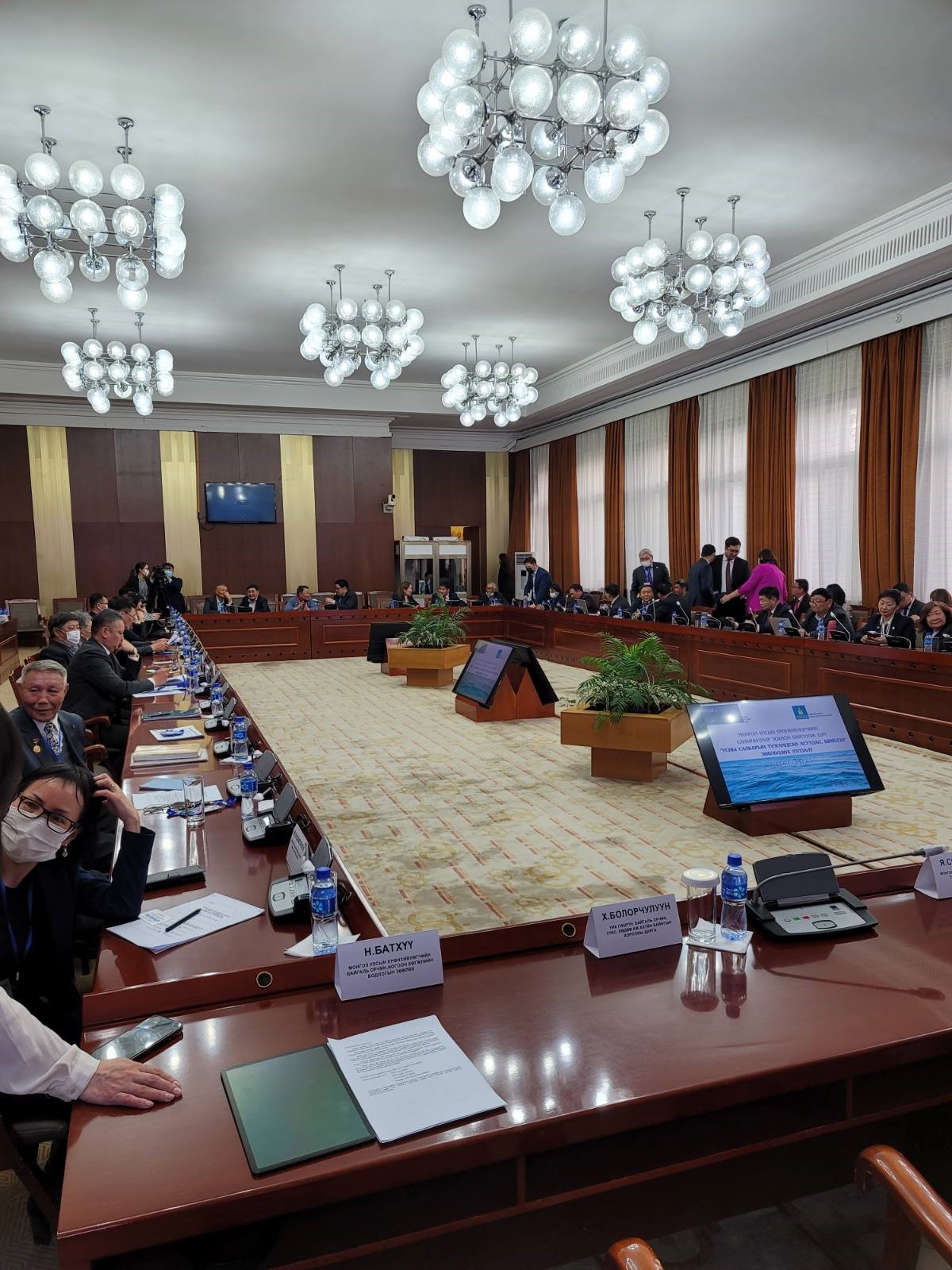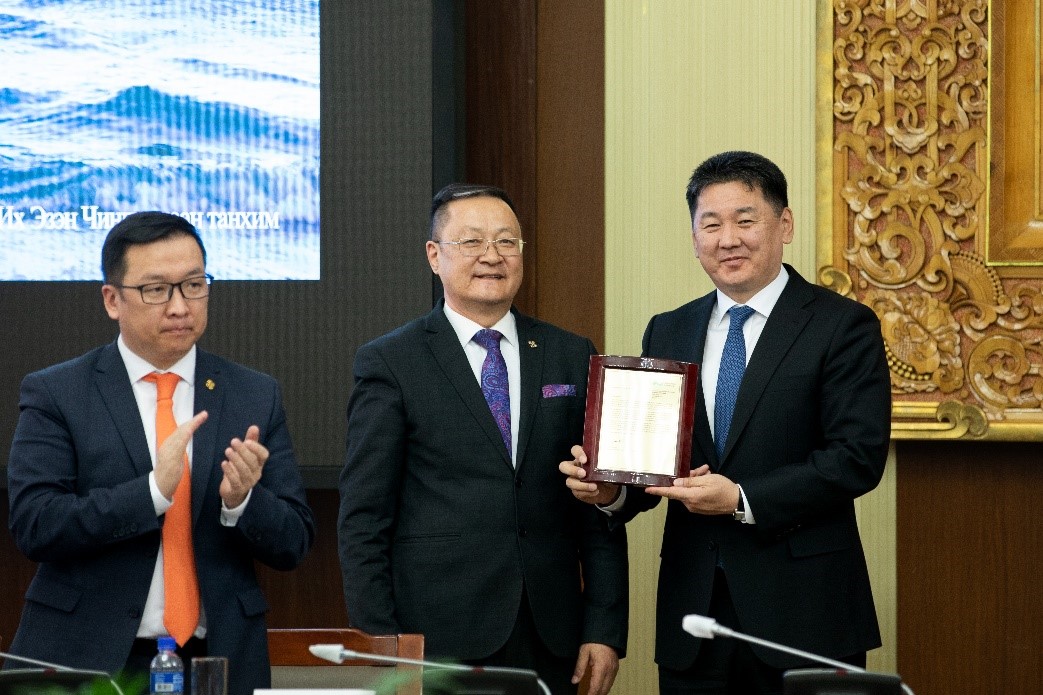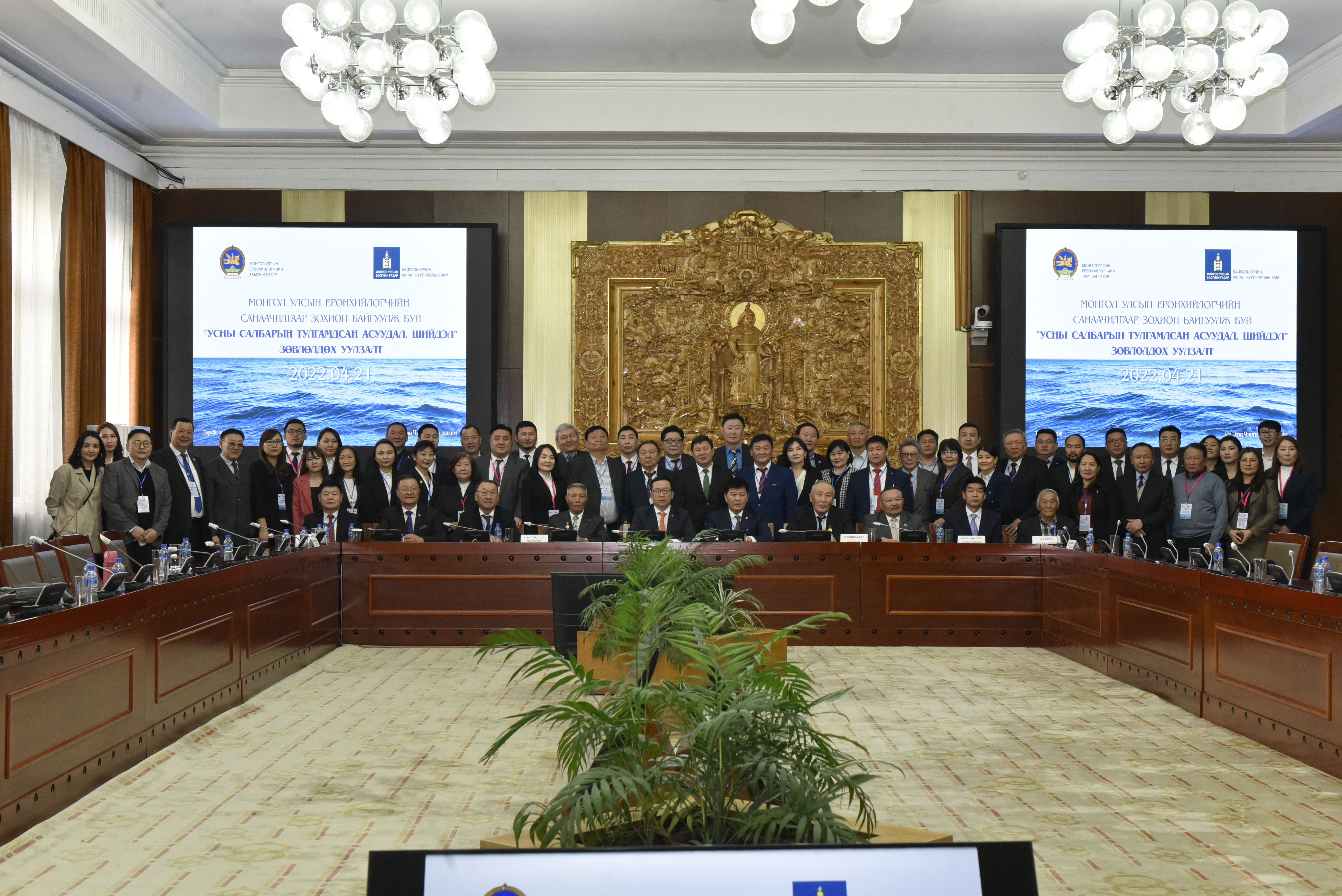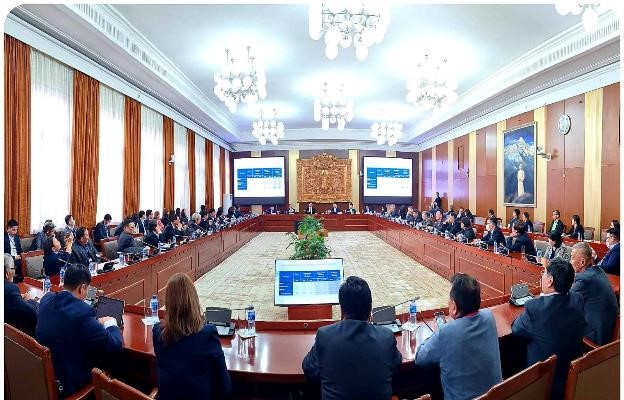The meeting was organized by the Country Water Partnership of Mongolia and the Water Agency of Mongolia.  This meeting was attended by the high-level persons from the Government of Mongolia, Parliament, ministries, as well as representatives of water sector, academicians, NGOs, scientists, researchers and various experts.
This meeting was attended by the high-level persons from the Government of Mongolia, Parliament, ministries, as well as representatives of water sector, academicians, NGOs, scientists, researchers and various experts.
They all gathered to discuss current water problems of Mongolia and exchange views and propose its solutions. The President of Mongolia U. Khurelsukh, in his speech at the meeting, said: "I am glad to meet with you today to discuss water policy in Mongolia. An essential part of Mongolia's policy is the environment and water. Scientists and researchers know that 76% of the territory of our country is decertified, degraded, and rivers have dried up, and natural and ecological difficulties have arisen. Therefore, I am glad that the "Billion Tree" national campaign initiated by the President of Mongolia has been supported and is becoming a nationwide movement. From the United Nations platform, Mongolia has announced that it will plant billions of trees by 2030. I am glad that citizens, businesses, and organizations supported this campaign and started organizing and working with the initiators to plant and protect trees in our country. Hundreds of years of scientific research have shown that "forests are the most reliable protectors and natural water reservoirs." Hence, water supply needs to be addressed first to grow forests. Our water sector was established in 1938 and is now on its 84th anniversary. In 2020, the Law on Water was amended, and the Water Authority was reorganized. Today, it operates under the Ministry of Nature, Environment, and Tourism. According to the 2021 water assessment, 6767 rivers, 4057 lakes and ponds, 13222 springs, and 635 mineral springs were counted in our country. In the last three years, 1586 rivers and streams have been restored, and 2452 rivers, streams, and springs have dried up. It shows the current natural condition of Mongolia and climate change impact on our environment.”
During the meeting, the Country Water Partnership of Mongolia's Chairman Prof. Basandorj Davaa presented a letter of appreciation to the President of Mongolia Ukhnaagiin Khurelsukh. He said: "I appreciate your authentic leadership in Mongolia's water sector. I am pleased to give you a letter of appreciation on behalf of the Country Water Partnership. We want to emphasize your contribution to Mongolia's water security, which is adaptable to climate change and has a sustainable future. Accept this letter of appreciation from the Country Water Partnership, as our wish to continue our long-term cooperation with you.”
Ukhnaagiin Khurelsukh. He said: "I appreciate your authentic leadership in Mongolia's water sector. I am pleased to give you a letter of appreciation on behalf of the Country Water Partnership. We want to emphasize your contribution to Mongolia's water security, which is adaptable to climate change and has a sustainable future. Accept this letter of appreciation from the Country Water Partnership, as our wish to continue our long-term cooperation with you.”
The meeting presentations covered the following topics: - Prospects for water demand in Mongolia and solutions to meet growing water needs; - Transboundary accumulation and use of surface water (foreign experience); - Approaches to strengthening water governance.
Participants came to conclusions followed presentations:
- The best solution to meet most of the growth in water demand is from available resources in the Arctic Ocean basin and the Selenga River catchment area.
- Implementing the Orkhon-Gobi and Orkhon-Ongi surface water reuse projects will address the short-term low water demand. However, obstacles to these activities include transboundary water issues and environmental and social impact assessments.
- The fact that many ministries are responsible for water issues is a severe obstacle to a unified approach to the further development and policy of water sector and finding appropriate solutions to current and future situations.
- Water resources and river basins, protection, rational use, rehabilitation, construction of water facilities, and ownership, use, and services should be considered comprehensively and based on water governance and management.
- The working group involving NGOs on water problems in Mongolia has to be established.
- The IWRM approach and establishing river basin councils are coming a target for water sector of Mongolia.
The Updated Draft Water law of Mongolia has been passed by Prof. Basandorj to the President office. The President of Mongolia came to the conclusion that the improvement of water governance as a strategic direction should attract serious attention from the government and parliament, as well as civil society.

